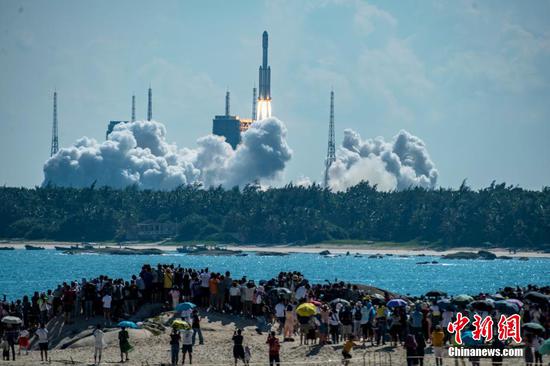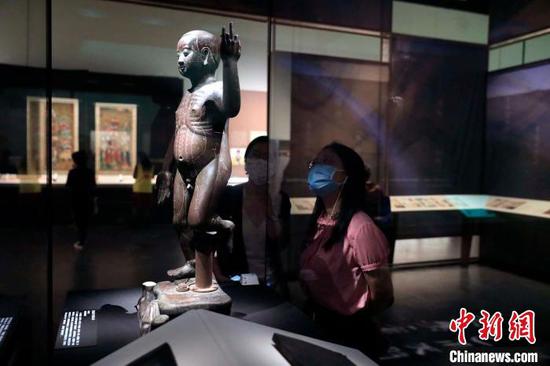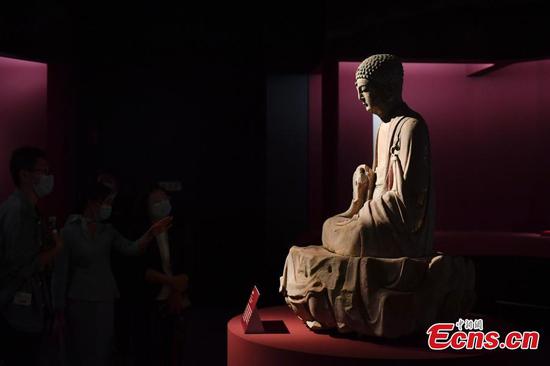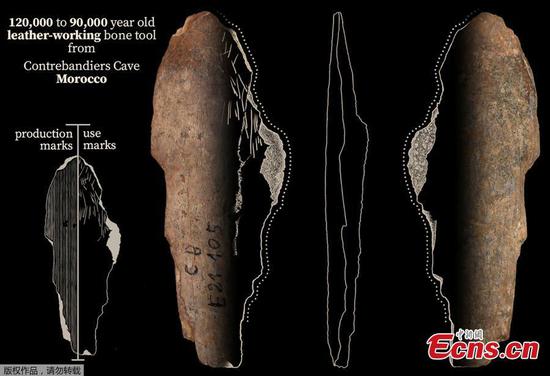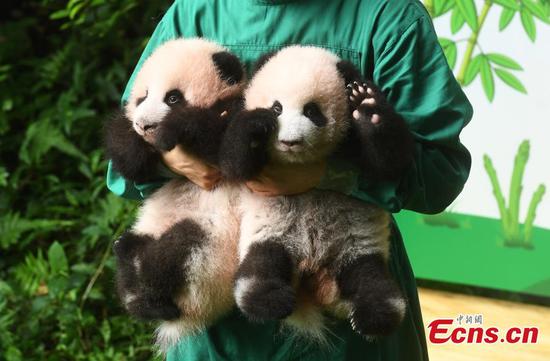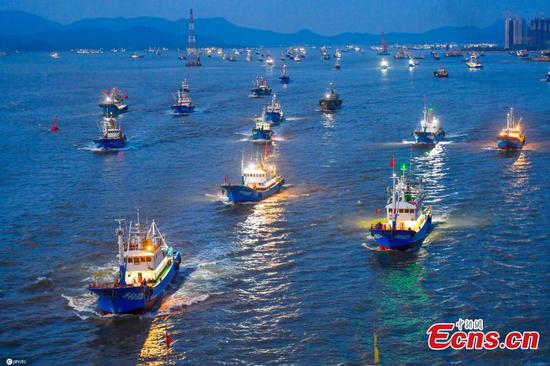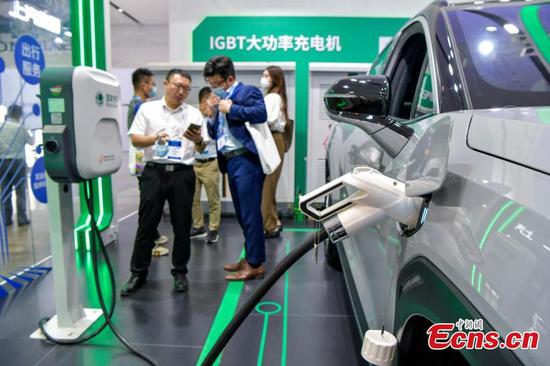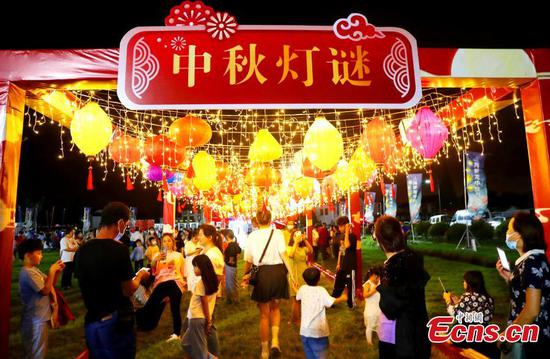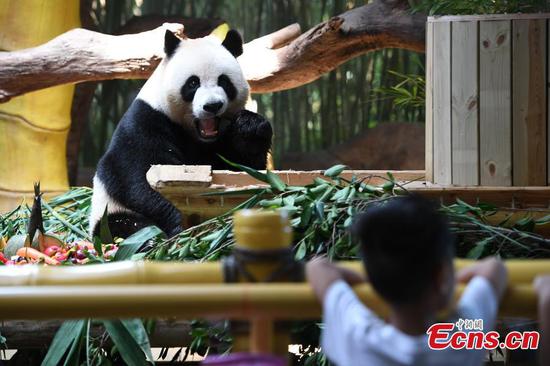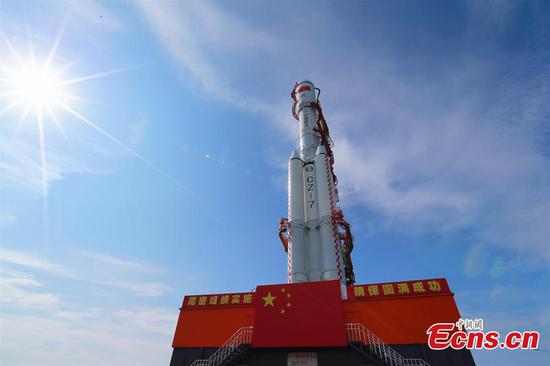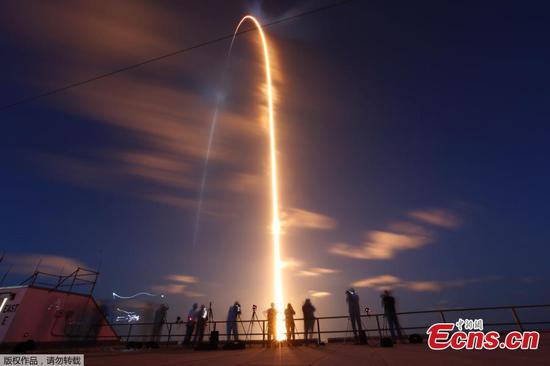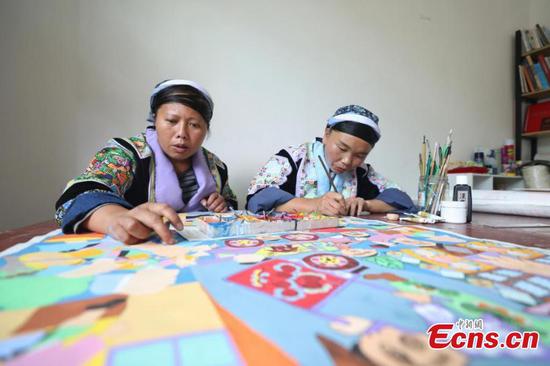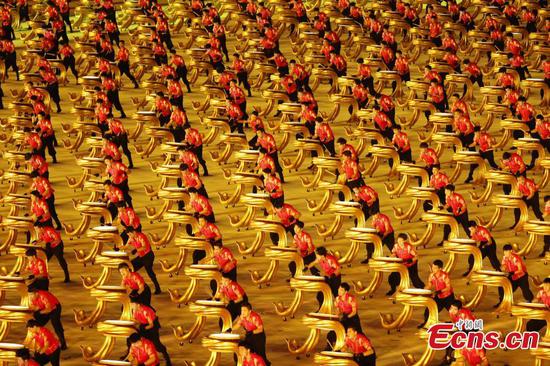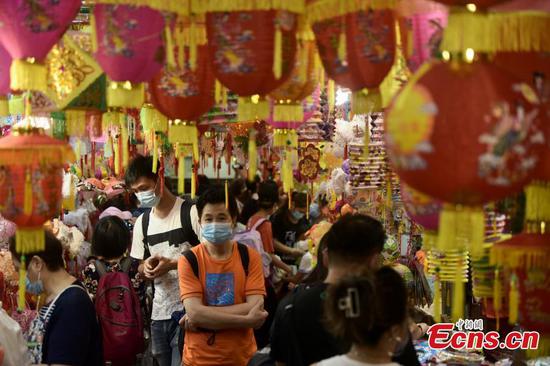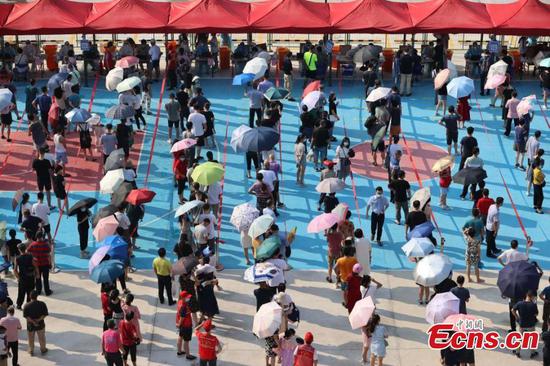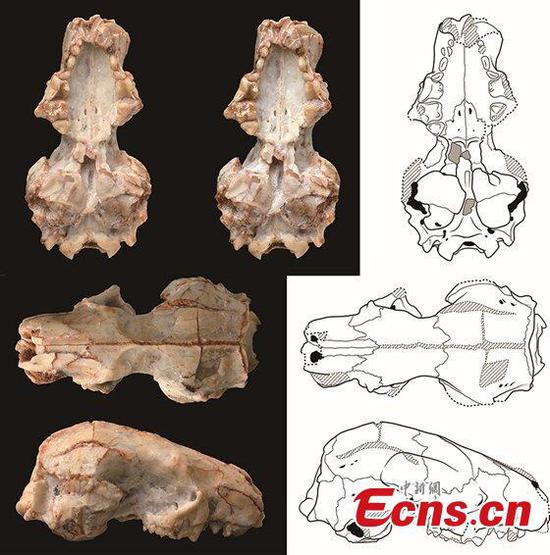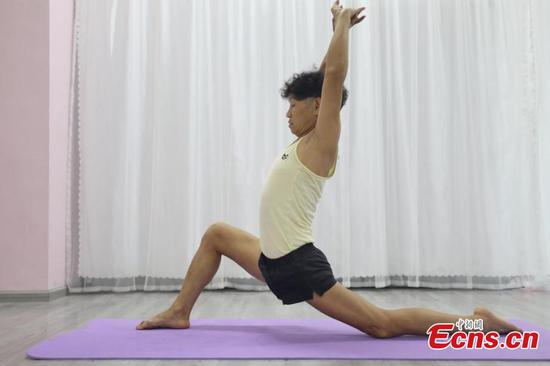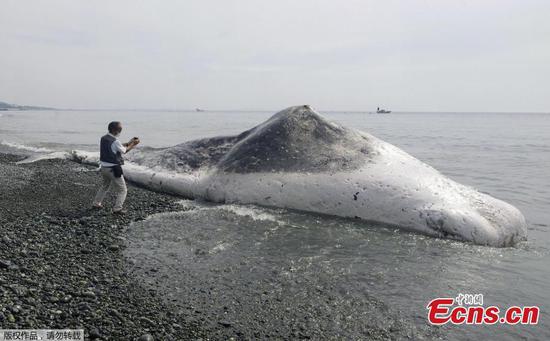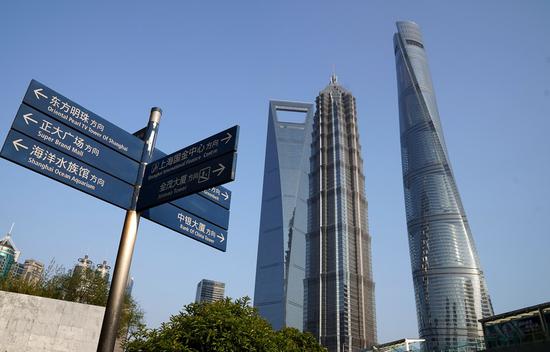
Photo taken on April 9, 2020 shows the Lujiazui area in east China's Shanghai. (Xinhua/Chen Fei)
In recent years, China has introduced a raft of measures to accelerate opening-up and foster a market-oriented, law-based and internationalized business environment, in a bid to better accommodate overseas investors.
The country has shortened the negative list for foreign investment for four consecutive years and released a negative list for cross-border trade in services at the Hainan free trade port, among others.
Famous U.S. coffee brand Starbucks' coffee innovation park project in Suzhou, east China's Jiangsu Province, broke ground only eight months after the signing of the investment contract.
Leading global asset management giant BlackRock established a subsidiary in Shanghai in June this year, which became the first wholly foreign-owned public fund management company in China.
Further opening of China's financial sector has provided the company with greater opportunities and space for development, the company has said.
COOPERATION PREVAILS
The "decoupling" mindset has led to a host of calculated shots at Chinese hi-tech companies in an attempt to suppress China's scientific and technological innovations.
These heavy-handed measures, such as restricting investment from Chinese tech firms, blocking export to Chinese entities, or bluntly torpedoing investment deals with executive orders, strapped some Chinese companies in temporary supply crunch and revenue slump. But they cannot derail China's scientific and technological pursuits.
China's expenditures in research and development (R&D) are growing steadily. R&D spending in 2020 topped 2.44 trillion yuan (about 378 billion U.S. dollars), after hiking 12.5 percent year on year to reach 2.21 trillion yuan in 2019.
Spending on basic research stood at 150.4 billion yuan last year, nearly doubling that of 2015.
An August ranking from Harvard University's Growth Lab showed rising technological level of China's exports since the start of the trade war in 2018. China ranked 16th globally on the Economic Complexity Index in 2019, climbing one slot from the previous year despite trade restrictions.
"The fact that no blockade or suppression can thwart China's advances is ample evidence of the country's growing strength in science and technology," said Ye Peijian, an academician of the Chinese Academy of Sciences.
To China, innovation has always been about opening arms rather than closing doors, with cooperation as the overriding theme of scientific and technological undertakings, according to Chinese Minister of Science and Technology Wang Zhigang.
Dubbed as "China Sky Eye," the Five-hundred-meter Aperture Spherical Radio Telescope (FAST) has been open to scientists around the globe since March this year, a signal that the country is open to cooperation with other countries. More and more researchers, especially foreign researchers, have applied to use FAST for observation and study.
So far, China has established innovation dialogue mechanisms with multiple countries, conducted joint research with over 50 countries and regions, and participated in major international science projects such as the International Thermonuclear Experimental Reactor.
Under the support of the Belt and Road science, technology and innovation cooperation plan, over 8,300 foreign young scientists have come to work in China, and 33 joint laboratories have been established.
Attempts to cut off the exchanges of ideas, people and technology and disrupt the supply chains will, in turn, undermine U.S. innovations, American industry insiders said, cautioning that continued "de-sinicization" acts would ultimately lead to "de-Americanization."
Export restrictions are a "double-edged sword": they will hurt not only Chinese high-tech enterprises but also firms in the United States and other countries that have business relations with their Chinese partners.
"In today's increasingly interconnected world, suppressing China is tantamount to self-isolation, which will end up shooting oneself in the foot," said Cui Fan, a professor at the University of International Business and Economics.








